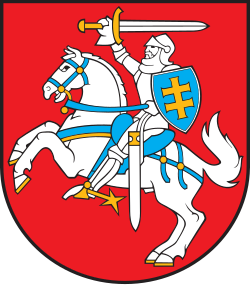 |
|---|
| |

A referendum on the withdrawal of Soviet troops was held in Lithuania on 14 June 1992. [1] Voters were asked whether Soviet troops (which by the time of the referendum had become Russian troops) [2] should unconditionally and immediately withdraw from the country. [2] It was approved by 93% of those voting and 69% of all registered voters, passing the 50% threshold. [2] [3]